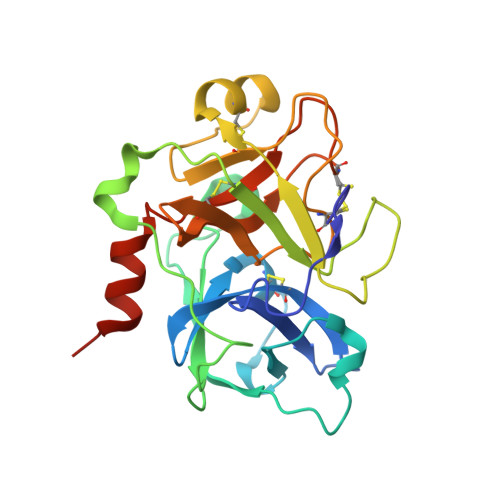Macrocyclic inhibitors of Factor XIa: Discovery of alkyl-substituted macrocyclic amide linkers with improved potency.
Corte, J.R., Yang, W., Fang, T., Wang, Y., Osuna, H., Lai, A., Ewing, W.R., Rossi, K.A., Myers, J.E., Sheriff, S., Lou, Z., Zheng, J.J., Harper, T.W., Bozarth, J.M., Wu, Y., Luettgen, J.M., Seiffert, D.A., Quan, M.L., Wexler, R.R., Lam, P.Y.S.(2017) Bioorg Med Chem Lett 27: 3833-3839
- PubMed: 28687203
- DOI: https://doi.org/10.1016/j.bmcl.2017.06.058
- Primary Citation of Related Structures:
5Q0D, 5Q0E, 5Q0F, 5Q0G, 5Q0H - PubMed Abstract:
Optimization of macrocyclic inhibitors of FXIa is described which focused on modifications to both the macrocyclic linker and the P1 group. Increases in potency were discovered through interactions with a key hydrophobic region near the S1 prime pocket by substitution of the macrocyclic linker with small alkyl groups. Both the position of substitution and the absolute stereochemistry of the alkyl groups on the macrocyclic linker which led to improved potency varied depending on the ring size of the macrocycle. Replacement of the chlorophenyltetrazole cinnamide P1 in these optimized macrocycles reduced the polar surface area and improved the oral bioavailability for the series, albeit at the cost of a decrease in potency.
- Bristol-Myers Squibb Company, Research and Development, 350 Carter Road, Hopewell, NJ 08540, United States. Electronic address: james.corte@bms.com.
Organizational Affiliation:



















